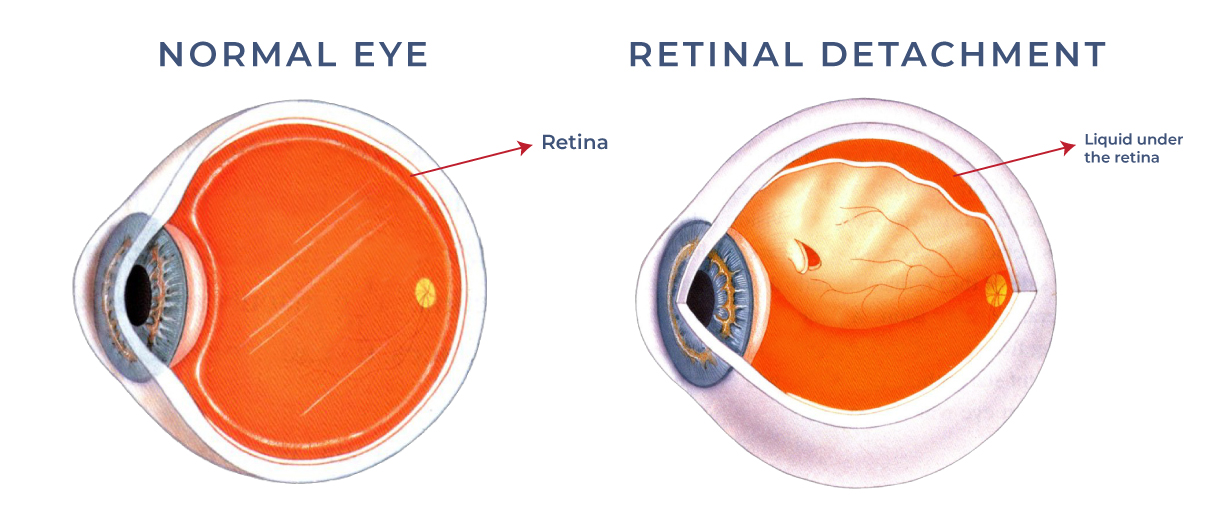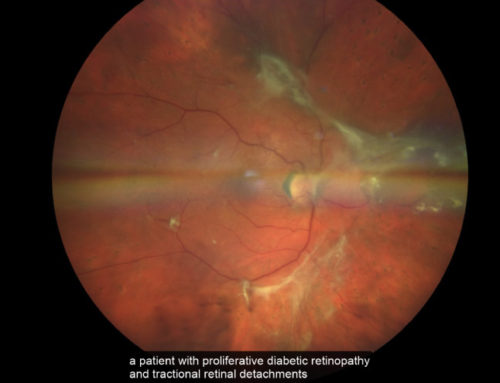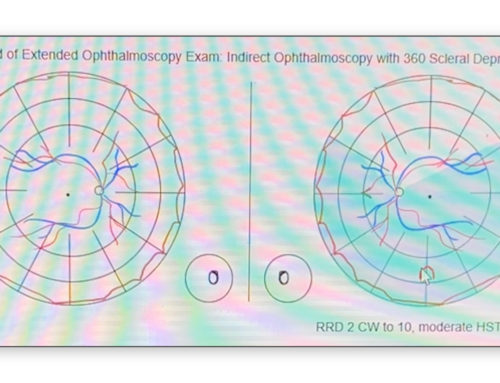
A retinal detachment is a serious eye condition that requires prompt medical attention. If you are experiencing any of the symptoms associated with retinal detachment, it is important to seek out the care of a qualified eye care professional as soon as possible.
Here are some of the most common symptoms of a retinal detachment:
- Flashes of light: One of the earliest signs of retinal detachment is the appearance of flashes of light, particularly in the peripheral vision. These flashes can be brief or prolonged and may occur at random or in response to changes in position or movement. The flashes are typically isolated to one eye (it is extremely rare to have a detachment in both eyes at the same time).
- Floaters: Another common symptom of retinal detachment is the appearance of floaters. These are small specks or dots that move across your field of vision, particularly when looking at a bright background such as a clear sky or a computer screen. New ink-appearing or large, stringy floaters are often a sign of bleeding in the back of the eye, which often occurs together with retinal detachment.
- Blurred or distorted vision: As the retina continues to separate from the underlying tissue, it can cause significant changes in vision. You may notice that straight lines appear wavy or that objects in your field of vision become distorted or blurry. The blurred vision is often accompanied by a discrete line that distinguishes where the retina is detached (blurred/distorted) and attached (normal).
- Peripheral vision loss: The retina detaches first from the peripheral retina, and while this creates far-peripheral vision loss, this is often not noticed until a gray or dark curtain is seen in a specific area of the peripheral vision. Interestingly, a detachment of the upper retina leads to vision loss in the lower field of vision, and in a similarly-inverted pattern for other areas of retinal detachment.
- Vision loss: If left untreated, retinal detachment leads to complete vision loss wherein you might only be able to see light, or in severe cases, no light at all. If you experience sudden or severe vision loss, it is important to seek medical attention immediately.
If you are experiencing any of these symptoms, it is important to contact Front Range Retina or another qualified eye care professional right away. The earlier retinal detachment is detected and treated, the greater the likelihood of preserving your vision and preventing permanent vision loss.




Leave A Comment